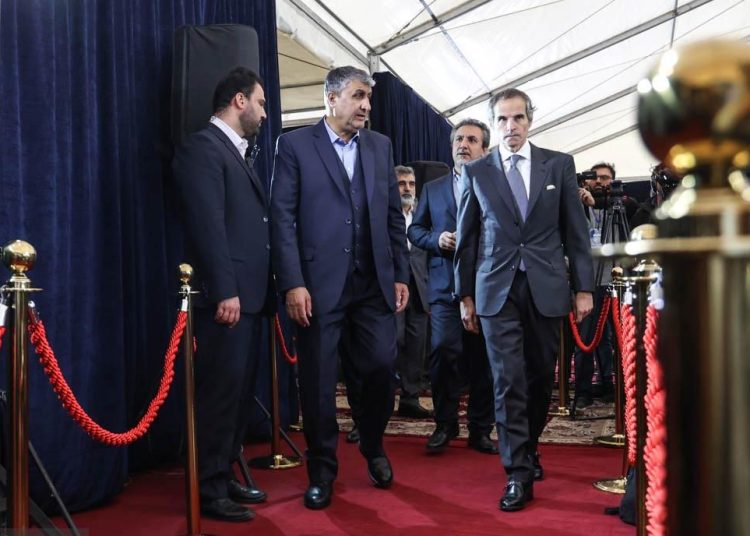In a significant diplomatic move, Rafael Grossi, Director General of the International Atomic Energy Agency (IAEA), is embarking on a visit to Tehran. His agenda includes high-level meetings with Iranian President Masoud Pezeshkian, Atomic Energy Organization Head Mohammad Eslami, and Foreign Minister Abbas Araghchi. This trip represents a critical opportunity for fostering trust and advancing cooperation between Iran and the IAEA, amidst a backdrop of complex international dynamics.
A Rare Opportunity for Trust Building
with the new government in Iran, Grossi’s visit is not merely routine; it symbolizes an earnest attempt to strengthen trust between Tehran and the IAEA. Such opportunities are infrequent and must be capitalized upon to mitigate longstanding issues. Iran’s invitation to Grossi and the provision of a high-level political platform for discussions underscore Tehran’s willingness to engage constructively on bilateral issues. This proactive stance indicates a mutual desire to address and resolve contentious matters, potentially paving the way for renewed cooperation.
Bilateral Engagement Amidst Multilateral Challenges
Iran asserts that meaningful interaction with the IAEA necessitates a reciprocal approach, emphasizing the agency’s need for constructive behavior and engagement. Grossi’s visit arrives days before the upcoming IAEA Board of Governors meeting, a timing laden with implications. Western states, particularly European countries, are reportedly keen on adopting a resolution or at least issuing a statement critical of Iran at the forthcoming session. The outcomes of Grossi’s discussions in Tehran could influence the Board’s deliberations. A positive conclusion from Tehran-IAEA talks might complicate or even thwart efforts to pass adverse resolution, while a lack of progress could facilitate its adoption.
Navigating Political and Technical Realities
Recently, moments of potential progress in Iran-IAEA relations have been stymied by interference from European states, preventing the achievement of positive outcomes. To uphold its credibility as an independent and technically driven organization, the IAEA must maintain a resolute, unbiased stance. However, Grossi’s apparent alignment with political rhetoric just before his travel to Tehran, threatens to undermine the agency’s professional integrity and send mixed signals to Iran and the international community.
The Crossroads of Technical Mandate and Political Intrigue
Grossi faces a pivotal choice: uphold the IAEA’s role as a purely technical entity or become entangled in the broader geopolitical game, potentially influenced by shifts in U.S. politics with the advent of Donald Trump’s administration. The direction Grossi takes could redefine the agency’s trajectory and its interactions with Iran. The recent political turbulence surrounding the Joint Comprehensive Plan of Action (JCPOA) adds another layer of complexity. As the ten-year anniversary of the JCPOA approaches in October 2025, the future of the agreement hangs in the balance.
Looking Ahead: Implications for the JCPOA and Beyond
The impending expiry of UN Security Council Resolution 2231, which endorses the JCPOA, raises pressing questions about the future trajectory of Iran’s nuclear program and international relations. Iran Nuances had learned that Tehran will respond decisively to any potential resolution at the IAEA Board of Governors meeting. Grossi’s visit to Tehran must navigate these turbulent waters, balancing the technical imperatives of nuclear oversight with the intricate web of international diplomacy.
Rafael Grossi’s visit to Tehran stands at a critical juncture, embodying a rare chance to bridge gaps, reinforce trust, and set a cooperative tone amid a fraught geopolitical environment. The success of this visit could significantly influence the dynamics of the IAEA Board of Governors and the future of the JCPOA.






